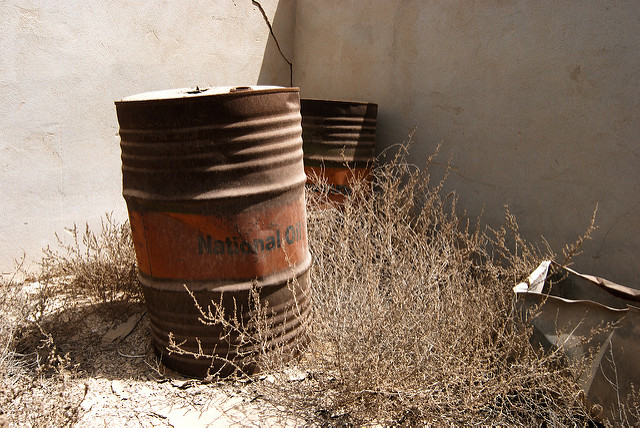
The sudden schism between Qatar and a Saudi Arabian-led coalition has already produced wide-ranging consequences. While Qatar continues to deny charges of supporting Islamist extremism, Turkey and Iran have intervened to ease the country’s isolation. The US has a large military base in Qatar, and the Trump administration has a somewhat conflicted focus on weeding out global terrorism via dubious Saudi agency, so the stage seems set for a protracted diplomatic crisis.
If this drags on long enough, it could have significant ramifications for an area of considerable Australian interest: the global trade in liquefied natural gas (LNG). Qatar remains the world’s largest exporter of LNG, but Australia is poised to overtake it soon, following a $200 billion investment drive in new export capacity. However, Australian enthusiasm has been tempered by low international prices, local cost overruns and political fallout from a shortfall in affordable domestic supply.
With Australian production seeking to disrupt the cheaper Qatari supply, Gulf geopolitics could speed up its ascendency, potentially even preventing some projects, such as
Queensland’s Gladstone, from becoming white elephants.
Despite its tiny population of 2.2 million people, Qatar has significant economic clout as a result of its massive gas supplies (and, to a lesser extent, its crude oil), which constitute about 13% of proven global reserves. Doha has long used the revenue from its gas—mainly LNG shipped to Asian markets also serviced by Australia—to support Islamist movements such as the Muslim Brotherhood.
Qatar’s support is in the form of direct funding for such groups or in the ideological backing of Al Jazeera. The state-run news network’s support for the Arab Spring uprisings was a major factor leading the Gulf Cooperation Council (GCC), led by Saudi Arabia, to cold-shoulder Qatar. Qatar’s gas-powered foreign policy was a principal motivation for the Saudis, the United Arab Emirates (UAE), Bahrain and Egypt—later joined by Yemen, Libya, the Maldives and, reportedly, several other countries—to suddenly sever diplomatic ties with the country, along with land, air and sea access.
For the blockaders, Qatar is also too close to Iran, which the other GCC members have been doing their best to isolate in recent years. The Qatar–Iran relationship is itself partly built on gas: the two countries share the massive North Field / South Spar reservoir. While that arrangement has occasionally led to disputes, a more cooperative spirit has dominated recently.
So far, the blockade hasn’t explicitly targeted Qatar’s natural gas capacities, though there have been some related impositions on that sector, including the UAE’s ban on Qatari LNG tankers using an anchorage off Fujairah. Such action will likely add delays and cost overruns but isn’t expected to stop Doha serving its customers. Continued stagnant global oil and gas prices have reflected that fact, as the glut of both resources assuages concerns about future disruptions.
While this might minimise
schadenfreude in the Australian LNG sector, there’s a longer term risk of more significant disruption. For example, Qatar could stop the flow of its gas to the likes of the UAE and Egypt, which could lead to further escalations in turn. The most extreme consequence would be Cairo blocking access to the Suez Canal.
Sanctions by the wider international community, as were used to curtail Iran’s oil sector for many years, could be a game-changer. That currently seems highly unlikely, not least because of continued US interests in Qatar, but continued tit-for-tat action between the parties involved and Donald Trump’s unpredictability and single-minded obsessions—in
one tweet about the blockade he referenced the possible ‘beginning of the end of the horrors of terrorism’—don’t completely discount it.
As it stands, passage through Iranian waters leaves Qatar’s access to Asia’s large and lucrative markets largely unthreatened, although continued geopolitical tensions could still inflict a massive hit on the country’s reputation as a reliable supplier. Before the blockade, Japanese companies
had reportedly already been using the growth in Australian supply as a bargaining chip in negotiations with Qatar on new long-term contracts.
And it’s not only Australian businesses that want to take up the slack in any potential disruption of Qatari LNG supply and to capitalise on potential impacts on oil and gas prices in the near future. The US, for one, is also making major inroads into the export market with its excess of fracked gas. Just this month it announced that LNG shipments had arrived in the Netherlands and Poland—the first ever American LNG sent to northern and central Europe.
American exporters have made a convincing geopolitical case for weaning European countries off Russian gas. Furthermore, the US is
better able than Australia to keep labour and other project costs down and to tap existing infrastructure, and the maturity of its domestic gas markets creates a much firmer business case for new investment. To top it off, Trump has promised more streamlined project development for new fossil-fuel operations, downgrading environmental and other concerns.
Added to the US threat is the continued emergence of LNG-producing countries such as Nigeria, while Russia’s Vladimir Putin has also spoken of a major push into LNG in the next few years. The most likely outcome of the blockade may therefore be a continuation of the trend toward more flexible selling arrangements, including one-off ‘spot’ purchases and short- and medium-term contracts, in which new Australian success is possible but relies on the aggressiveness of the negotiators.
Before the Saudi-led blockade, analysts had predicted a continued oversupply of gas, at least until a lack of new development owing to sustained low prices has an impact. Markets have so far failed to react to the threat to the world’s largest LNG exporter, indicating that there’s little chance of a shake-up big enough to immediately lift Australia to that rank, or to ensure a better return on investment for major Australian projects. That might take a far larger Middle Eastern geopolitical rupture than the current one—which we can, of course, never entirely discount.
 Print This Post
Print This Post